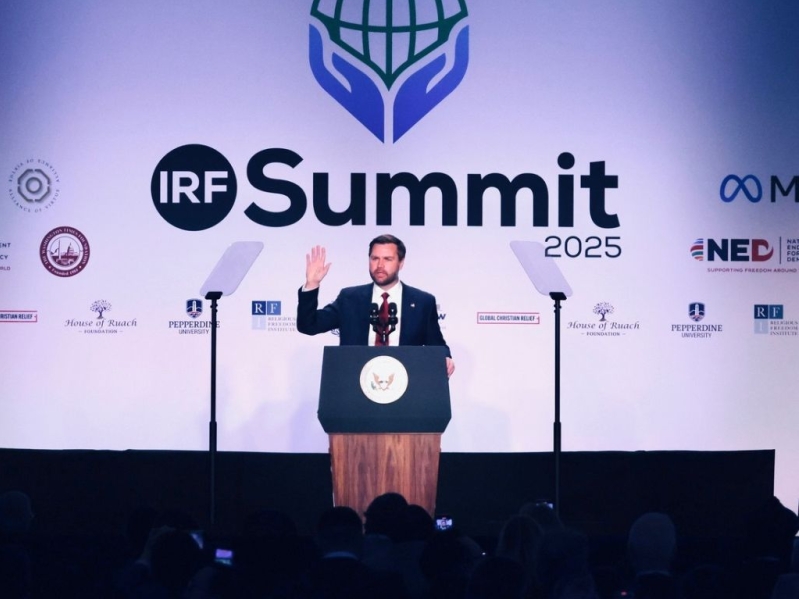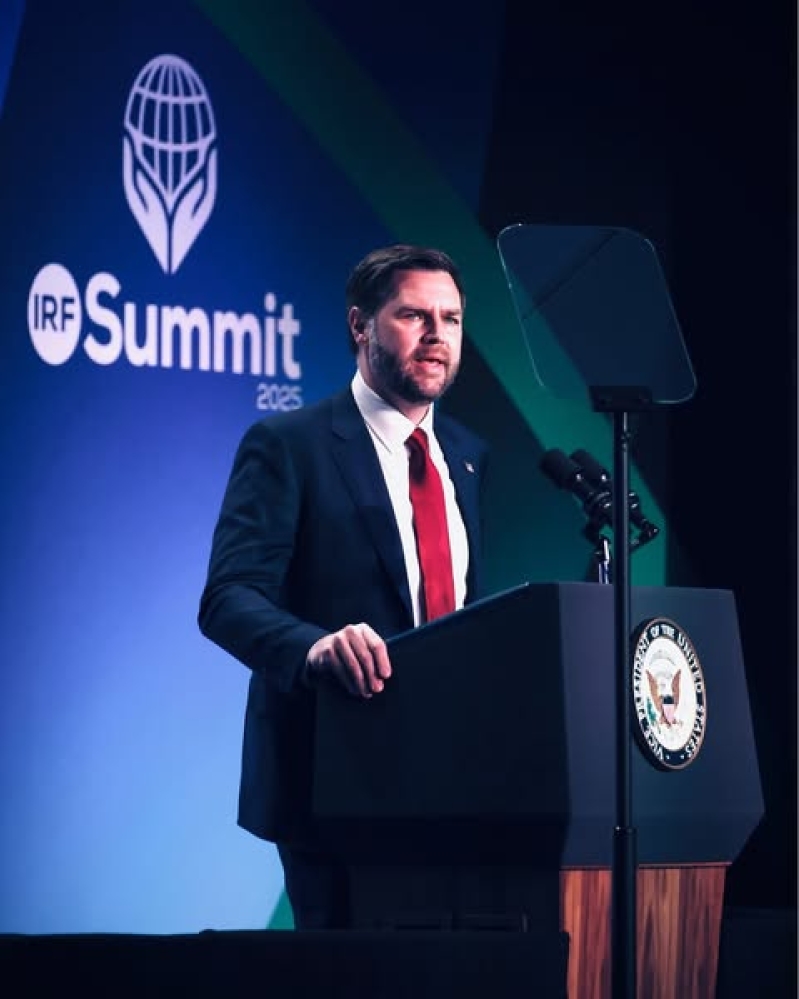Vice President J.D. Vance reaffirmed the administration’s commitment to religious liberty in a keynote speech at the International Religious Freedom (IRF) Summit on Wednesday. Addressing faith leaders, government officials, and human rights advocates, Vance emphasized the historical roots of religious freedom, the role of faith in American society, and the administration’s renewed efforts to protect believers from persecution worldwide.

A Commitment to Religious Freedom
Vance framed religious liberty as a fundamental right, citing early Christian theologians and America’s founding fathers as key figures in shaping this principle. He referenced third-century church father Tertullian, who first coined the term “religious liberty,” and noted how leaders like John Adams and Thomas Jefferson integrated these ideals into the country’s constitutional framework.
“Religion cannot be imposed by force,” Vance said, quoting a Christian apologist from the era of Emperor Constantine. “The matter must be carried on by words rather than by blows.”
He argued that religious freedom is not simply a legal issue but a core value that underpins civil society. He described churches as community pillars that bring people together across racial and economic divides, fostering service, charity, and shared purpose.

Administration’s Policy Priorities
The Vice President also outlined the administration’s approach to religious liberty, particularly in its second term. He praised former President Donald Trump’s first term for prioritizing faith-based protections and vowed that the new administration would build on that foundation.
“We are only three weeks into the second Trump administration, but we have already taken decisive action,” Vance said. “From ending the federal government’s weaponization against religious Americans to pardoning pro-life protesters unjustly imprisoned under the last administration, we are restoring the rights of people of faith.”
He criticized past policies that funded organizations promoting secularism abroad and vowed to refocus U.S. foreign aid on supporting religious communities facing persecution.
Global Religious Persecution in Focus
Vance also addressed the plight of religious minorities worldwide, condemning regimes that suppress faith-based communities. He highlighted the persecution of Christians in Iraq, the repression of religious groups in China, and broader threats to faith communities across the Middle East and Africa.
“The United States must distinguish between governments that respect religious freedom and those that do not,” he stated. “We must possess the moral clarity to act when religious groups face oppression.”
He praised newly confirmed Secretary of State Marco Rubio as a champion of religious liberty and expressed confidence that U.S. foreign policy would reflect a stronger commitment to defending the rights of the faithful.
Looking Ahead
Vance closed his speech with a call for continued advocacy, thanking faith leaders and human rights organizations for their work. He emphasized that religious freedom remains a central pillar of American identity and a guiding principle for the administration.
“The source of religious liberty is the recognition that all of us are equal under the rights and laws of God,” Vance said. “That principle will guide us in the years to come.”
The speech was met with applause from attendees, signaling strong support for the administration’s stance. As the White House moves forward with its religious freedom agenda, the coming months will test how these commitments translate into concrete policy actions.






